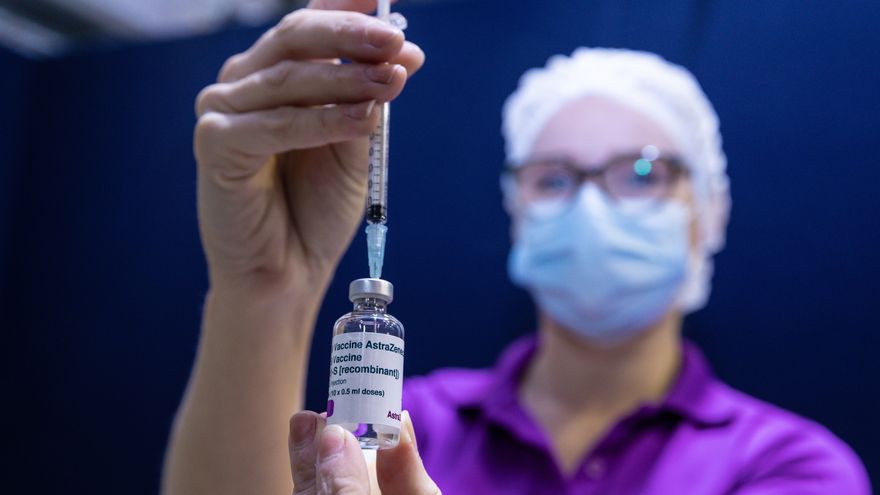The European Union has asked the Belgian courts on Tuesday that the pharmaceutical company AstraZeneca be ordered to pay compensation for damages caused by the delay in the delivery of vaccines to the countries of the bloc, in a second civil lawsuit that adds to the previous emergency procedure with which irequested that the laboratory immediately deliver 90 million doses, which in any case represents less than half of what was agreed for June.
The European Commission, which has gone to the ordinary courts after failing to amicably achieve that AstraZeneca complied with what was signed, claims precautionary measures to force the laboratory to deliver all the vaccines committed to the EU, but also requests access to confidential documentation and compensation for “damages”.
The lawsuit provisionally calculates the compensation at one euro because the damage has not been evaluated for the moment, but legal sources explain that this is the usual procedure and that the real amount will be known with the process already underway, when the real impact of non-compliance can be analyzed.
The French-speaking Court of First Instance in Brussels, which held the first hearing on Tuesday, has set the next hearing for 24 and 29 September, although according to legal sources it is unlikely that there will be a final decision on the merits of the case until September 2022.
For this reason, the lawyers representing the Community Executive and the Member States have requested precautionary measures to ensure that AstraZeneca delivers all the doses committed to in the contract, i.e. 300 million doses, by September at the latest, even if this means a delay of three months in the established timetable.
The lawyers for the European team stressed during the hearing the “urgency” of resolving this case “in light of its impact on human lives, fundamental freedoms and the vaccination campaign” and hoped that a hearing would be set as early as June, something that the Court ruled out due to lack of resources.
AstraZeneca’s defense, for its part, has questioned whether the case should be resolved as a matter of urgency, since the European Union has managed to obtain supplies from other firms that allow it to have a reserve “amply sufficient for its population”, thanks in part to the contract with the laboratory Pfizer, which one of AstraZeneca’s lawyers has referred to as the “darling” of the European Commission.
Urgent procedure
Knowing that the usual deadlines in justice are slow, the Commission decided in April to present a prior urgent procedure in which the European Union demands the immediate delivery of at least 90 million vaccines, which in practice represents less than half those signed for June.
The Belgian Justice will hold a first hearing on May 26th to examine this matter and has a month to make a decision, although legal sources consulted by Europa Press expect that it will not exhaust the timetable and will make a decision in “weeks”.
The European Commission agreed with AstraZeneca to purchase a total of 300 million doses for supply to the EU-27 between the end of 2020 and June 2021, but the pharmaceutical company announced a delay of three months in the planned schedule and subsequently has again revised and lowered its distribution targets with the EU.
Thus, to date it has delivered with delay the 30 million vaccines planned for December last year and has offered to deliver another 70 million before summer, although it has only delivered 20 million of this batch.
According to what has been signed, the rest of the pending vaccines, a total of 180 million, should therefore be supplied by the pharmaceutical company by September at the latest, in accordance with the revised timetable proposed by the Commission.

